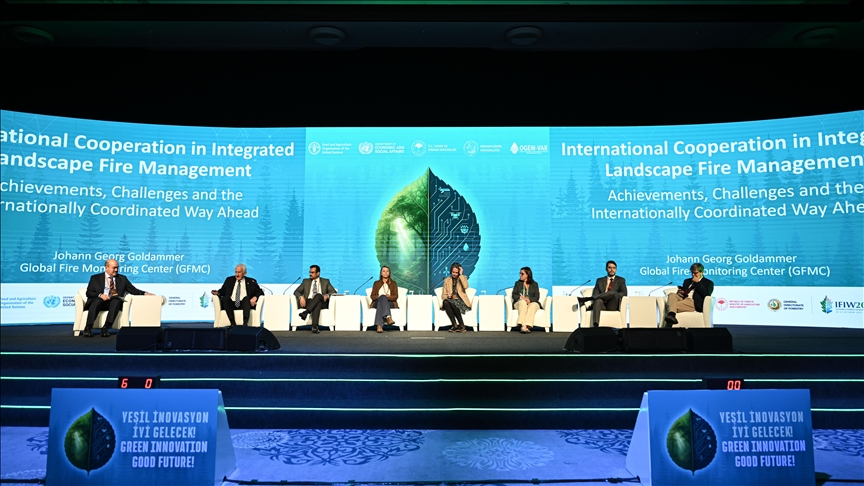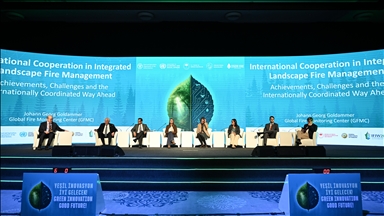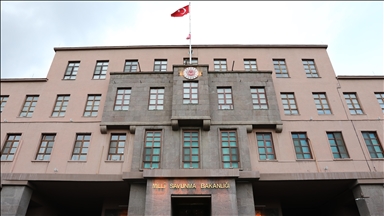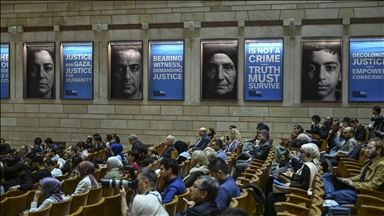
ISTANBUL
Istanbul Forest Innovation Week (IFIW), which brings together scientists, experts, and industry representatives from around the world, held panels and discussions on Thursday on bioeconomy, Mediterranean forests, and food-forest relations.
The conference is being organized by the Turkish Agriculture and Forestry Ministry's General Directorate of Forestry in cooperation with the UN Forest Forum (UNFF) and the Food and Agriculture Organization (FAO). It will be an important platform to shape the future of global forestry policies. Anadolu is the global communication partner of Istanbul Forest Innovation Week 2025.
The meeting, which began Monday, will last five days with the participation of 75 countries, 30 international organizations, and more than 400 expert representatives.
Speaking at a panel, Ismail Belen, president of the UNFF, provided information on the practical application of the bioeconomy in Türkiye.
Belen stated that there are approximately 24 million hectares of forest in Türkiye, adding that around 10% of the country's population, or seven million people, live in or near forest villages.
Türkiye's annual medium-density fiberboard (MDF) exports are worth approximately $10 billion. In the concept of bioeconomy, forests must be managed and utilized appropriately.
Pointing out that the biggest problem in forest areas in Türkiye and Central Asia is the inability to develop tree species resistant to arid areas, Belen said that when there is no snowfall, forests cannot be sufficiently nourished, and this leads to a serious water shortage.
Another panel at the event was held under the main theme of "Restoration of Mediterranean Forests" to address the fires in Mediterranean forests and the enhancement of biodiversity.
The event also featured a panel discussion on forests' importance for feeding people. Speaking at the panel, deputy manager of the Turkish General Directorate of Forestry, Ibrahim Yuzer, said that they are striving to increase the absorption capacity of forests by taking into account their carbon sink function in the process of climate change, adding that forests are also very important in terms of food.
Yuzer pointed out that Türkiye closely follows developments in this field, from non-wood forest products to foods grown in forests, and noted that Türkiye increased its production of non-wood products 32-fold in recent years.
"We have carried out a project to contribute, at least to some extent, to the income of people living in rural areas through what we call income-generating tree planting, which involves planting fruit trees such as walnut, fruit, and almond trees on forest-quality land," he said, adding: "We planted over 32 million fruit-bearing forest tree saplings in our forests, aiming to contribute to the income of the people living there."
Anadolu Agency website contains only a portion of the news stories offered to subscribers in the AA News Broadcasting System (HAS), and in summarized form. Please contact us for subscription options.







